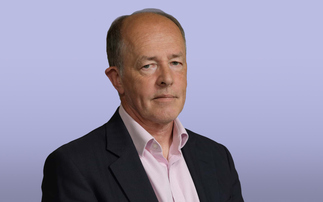How can the financial services sector create good outcomes for women as both employees and customers? This was the question posed by Quilter's corporate affairs director Jane Goodland to four panellists at TISA's annual conference this week.
How can the financial services sector create good outcomes for women as both employees and customers? This was the question posed by Quilter's corporate affairs director Jane Goodland to four panellists at TISA's annual conference this week. While there were a multitude of different answers to her question, there was one overriding theme to all of them; the industry needs to stop just talking about creating better outcomes for women and just get on and create them.
How to speed up the pace of change?
One of the many scary statistics that Jon Terry, partner and diversity & inclusion leader at PwC, pulled out of his ‘stat box' during the debate, was if the gender pay gap continues to narrow at the same pace it is currently then it won't be closed until 2045. Another panellist, Nick Wright CEO of SS&C DST, said that the process will be sped up if companies focus their attention on junior and middle management. It is typically this level of manager who does the bulk of the hiring and it can be here where women lose out. Nick highlighted flexible working arrangements as something middle management are yet to fully get behind, meaning men may have an unfair advantage as typically they don't seek out flexible arrangements as much as women . However, he added conversely more also needs to be done to change men's thought processes in regards to paternity, so that the task of childcare doesn't all fall purely on the mother.
Should we have differing products for men and women?
During the panel discussion, an audience member questioned whether companies which market financial services in a female centric way were aiding women or whether they further divided the customer base. Nathalie Stone, a financial planner and owner of Mansion House Capital, thought the differences between men and women are largely down to social construction; however that still means there are behavioural differences. As such, the industry needs more financial products which cater to these differences. Nathalie was quick to say that this definitely does not mean simply using pink in a company's marketing strategy. Instead, companies need to appreciate exactly what the differences are. In her experience women tend to not like jargon, they look for security and that results in them being more risk averse than their male counterparts and a firm's products need to reflect this.
Will financial education help more women get into financial services?
Although the panel all championed how important financial education is for all, it was not necessarily the silver bullet to getting more women into financial services. Typically most people, regardless of gender, have little understanding of financial services before starting but because it is still a male orientated atmosphere, and men are perhaps happier to dive into an industry they are unknowledgeable about. Katrina Sartorius, the managing director of Aegon's Institutional business for Cofunds, felt that her success came from her determination to prove the men who judged her because of her gender wrong. However, while this worked for her, she did not think this is an environment all women thrive in, and financial services needs to be a more accommodating to all personalities.
What's next for the debate?
Jon finished by asserting that if the industry keeps talking about this issue but fails to make meaningful change it will lose its prominence. The final consensus from the panel was that creating better outcomes for women, both as employees and customers within financial services is something we need to simply start acting on and not just talking about.










